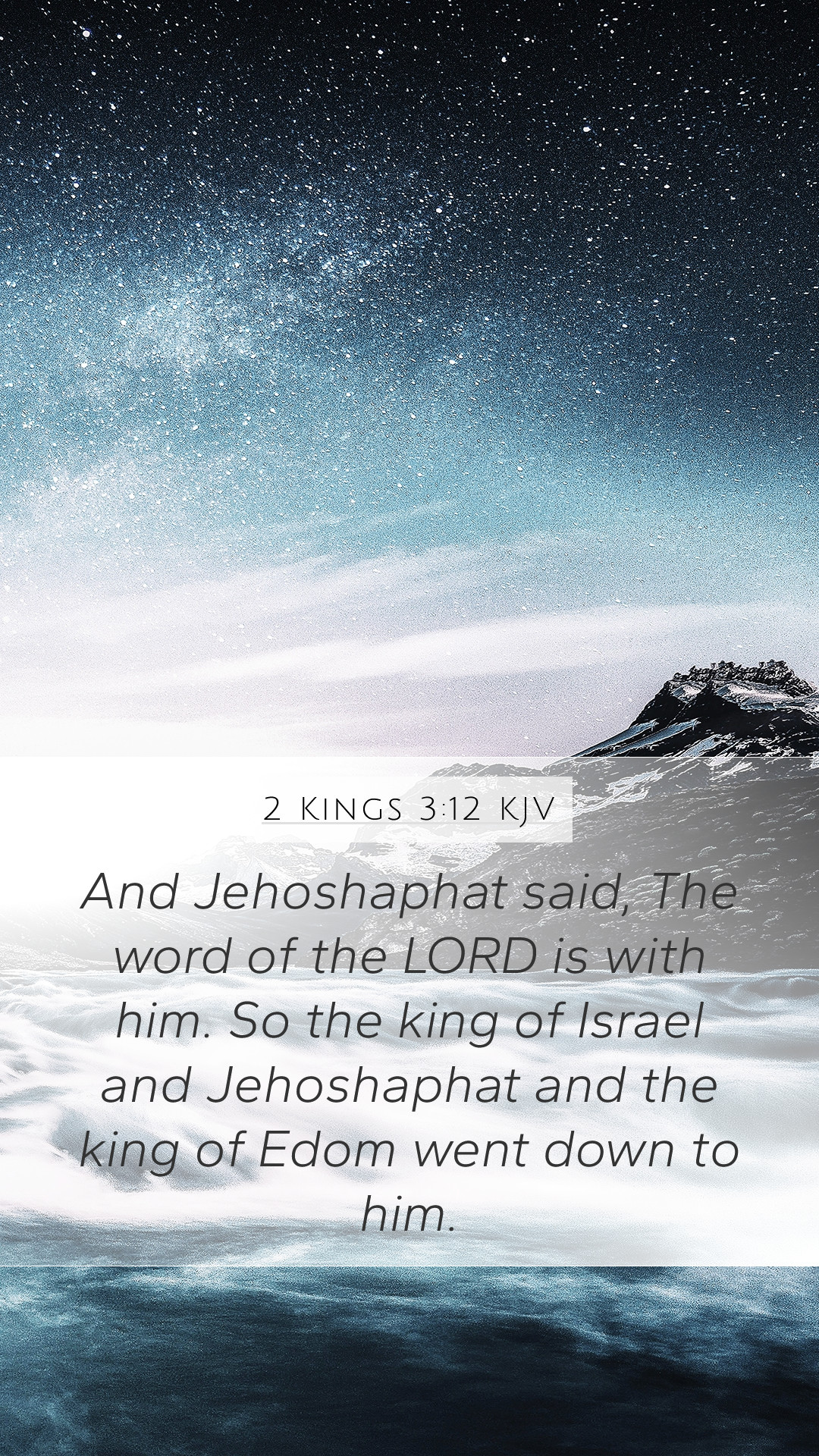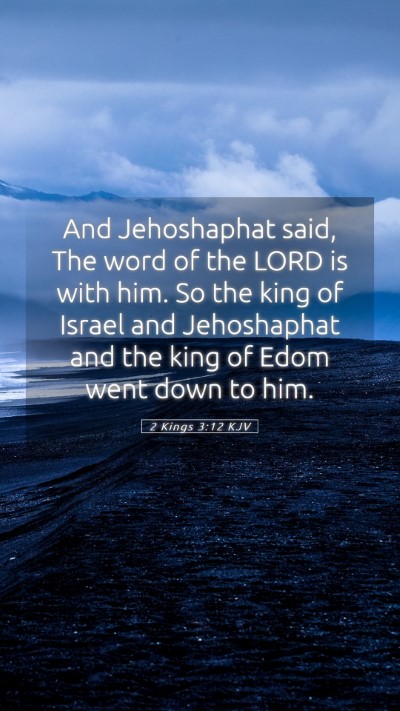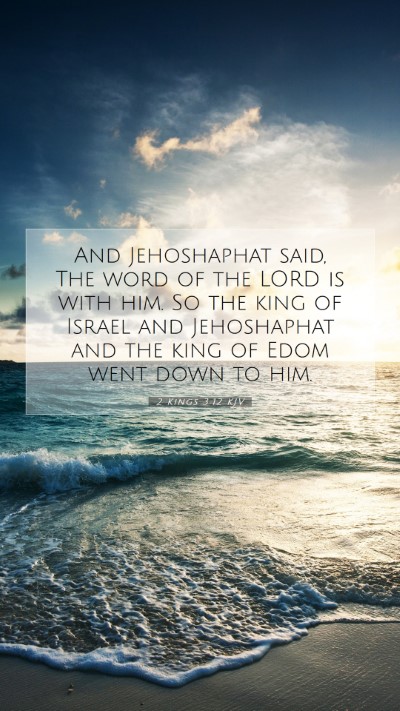Understanding 2 Kings 3:12
“And Jehoshaphat said, The word of the Lord is with him. So the king of Israel and Jehoshaphat and the king of Edom went down to him.” (2 Kings 3:12, KJV)
Bible Verse Meaning
This verse occurs within the narrative of King Jehoram of Israel and his alliance with King Jehoshaphat of Judah, as they confront the opposing King of Moab. The message encapsulated in this verse emphasizes the importance of divine guidance and the acknowledgment of God's prophets in times of distress.
Bible Verse Interpretations
According to Matthew Henry, Jehoshaphat's declaration acknowledges the significance of consulting a prophet to discern God's will. The verse symbolizes the unity of the three kings in seeking divine guidance before engaging in battle, showcasing the understanding that success in conflicts relies on the Lord's favor.
Albert Barnes notes that Jehoshaphat's assertion reflects a recognition of Elisha as a legitimate prophet. Elisha's presence is significant, as the “word of the Lord” refers to divine insight and prophetic authority, which is essential for the kings during their military endeavor.
Adam Clarke adds that the moment illustrates a pivotal teaching in Scripture concerning the necessity of prophetic counsel. Through Jehoshaphat’s affirmation, the audience is reminded of the foundational principle that all leaders should seek the Lord's direction, especially in formidable challenges.
Bible Verse Understanding
Understanding this verse involves recognizing the historical and theological significance of prophetic voices in Israel's history. The leaders' acknowledgment of Elisha’s prophetic ministry points to a deeper understanding of the covenant relationship between God and Israel.
The Role of Jehoshaphat
- Jehoshaphat exemplifies a godly leader who prioritizes divine guidance over military prowess.
- This choice reflects his commitment to God's will, a characteristic often highlighted in his reign.
The Significance of Prophetic Guidance
- The verse illustrates the critical role of prophecy in Israel, affirmed by the presence of Elisha during the kings' crisis.
- Hebrew practice involved looking towards prophetic insights as a means to understand God's directions in life affairs.
Bible Verse Explanations
This verse can be explained as a clarion call for believers to seek God’s direction before undertaking significant tasks or facing adversities. It resonates with the theme throughout the Scriptures that emphasizes wisdom, which is found in submitting to divine insight.
Practical Applications
- Believers are encouraged to involve God in decision-making processes, whether personal or communal.
- This verse teaches the importance of recognizing and valuing Godly counsel in the form of spiritual leaders today.
Bible Verse Commentary
Biblical exegesis of this passage sheds light on the implications of seeking God's word before action. It urges the audience to reflect on how modern leadership, whether in church or society, often forgets to seek divine insight and prophetic direction.
Cross References
- 1 Kings 22:7-8 - Jehoshaphat's history with prophetic counsel.
- 2 Chronicles 20:20 - Jehoshaphat's reliance on the Lord leads to victory.
- Isaiah 30:21 - The principle of following God's guidance.
Conclusion
In summary, 2 Kings 3:12 serves as a profound example of the necessity of seeking divine wisdom and counsel in our choices. This verse stands as a testament to the timeless need for spiritual guidance, underscoring the significance of God’s word in providing direction and assurance, thereby enhancing our Bible study insights as we delve deeper into the meaning of Bible verses.


